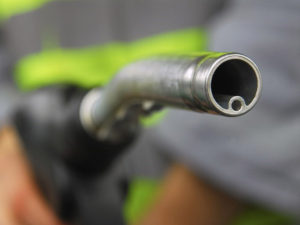Martin Devine, managing director at Fueltek, explains how fleets could save money by buying fuel in bulk and closely monitoring use.

It’s important to make sure that you are consistently fulfilling all aspects within your fleet, especially if you are a fleet manager. For example, some of your duties may include maintaining road worthiness of vehicles, selecting the right type of vehicles for your fleet, and making sure that your fleet operates in the most cost effective way possible.
These rules apply to any type of fleet manager, whether it is one that oversees a fleet of articulated lorries or HGVs that specialise in home removals.
There are a number of ways that they can achieve this, but the most successful way of accomplishing this is by buying diesel in bulk and having a system that is specialised in monitoring the fuel.
Fleet managers can buy, or lease the necessary tools to install a viable fuel management system in their own premises to ensure a cost-effective fuel solution for their company.
Advantages of buying in bulk
There are several advantages with buying the right diesel in bulk, especially since you will be getting a cheaper deal buying diesel in bulk for your fleet than buying it by the litre from a petrol station. This would be perfect for a commercial fleet of large vans, whether they are removal or transit, since they usually have to travel long distances and at higher speeds than most HGVs.
They are also great if a fleet relies on convenience fuel, as all vehicles are able to fill up before starting their journey. This cuts out unnecessary journeys to filling stations for your whole fleet, which in turn is saving yet more of that precious fuel.
Buying diesel on the road will be more costly, so having a place where you can store your fuel in bulk and then filling it when necessary would be the most beneficial and cost effective to these types of fleets. In addition, it’ll also save your fleet workers time, as they won’t be stopping off to fuel up when travelling.
What if space is an issue?
Fleet managers with limited space available to them may be concerned this isn’t a fuel management solution for them. This isn’t the case though, as the footprint of a fuel tank is actually quite small. A tank that stands at 3m x 5m will give you around 45,000 litres of storage space. The biggest issue many companies find is paying the initial fees for fuel management systems. But once a company gets past the initial outlay, they’ll begin to see savings creeping into their profit margins.
Advantages of Monitoring the Fuel
Monitoring systems help to ensure that tank stocks are kept in order, as well as enabling you to monitor all fuel issued through the pump. However, there are certain things that you need in addition to these for you to track how you are saving money.
Installing a fuel management system would be the first port of call. A good fuel management system will enable you to ensure only authorised fuelling takes place. It will allow you to control the fuelling operation, ensuring vehicles are filled at appropriate times, the start or end of a shift.
It should allow you to take offsite fuelling into consideration and give a complete fuel picture. It will allow you to monitor the consumption and analyse MPG figures for individual vehicles, groups, cost centres or departments. It will monitor and measure deliveries of fuel, as well as providing you with useful information, such as overfill alerts, current stock levels, and even alarm any unusual bulk stock movement. It should make drivers more accountable and provide reliable information without a deluge of difficult to understand data. All in all, it should enable you to know the who, what and where of your fuel supplies and enable you to understand and justify your costs.
The end result
There are various ways in which fleet managers can be more cost efficient on their fleet, but it’s important to understand the different avenues and possibilities that are available. Monitoring fuel used by your fleet has come a long way in the past few years; with the technology that is available now. With the increased information on offer, it’s now vital to make sure that, when you have the necessary data, it is presented in a user-friendly way – no-one wants to see lots of data in one report, as it can be off-putting.
The fleet manager will therefore be able to keep a close eye on the cost efficiency of your fleet, providing them with knowledge to ensure vehicle and employee performance is kept at an optimum.

